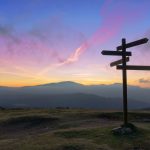It’s often said that experience is the best teacher. The philosopher John Dewey more accurately observed, “We do not learn from experience; we learn from reflecting on experience.”
Practitioners across Canada confirmed that belief within the CERIC-funded project Unlocking the Career Development Value within Experiential Learning, led by OneLifeTools. At every level, experiential learning designers seek reflective practices and tools to connect experiential learning and career development outcomes.
No matter the subject taught, or program provided, learners seek keys to translate experiences into a better future. Telling stories to highlight assets critical to employment and successful life roles is an important work-integrated learning (WIL) outcome.
Fortunately, practitioners shared best practices to complement a literature search, environmental scan, key informant interviews and survey to create a vault of resources we called Wayfinder. This digital tool allows practitioners – and other “makers” of reflective practice such as workplace supervisors – to search for relevant reflective practice resources to unlock the career development value within experiential learning programs.
Reflections: Before, during and after
Learners internally evaluate experiences before, during and after they happen. They collect self-images, make meaning from verbal and non-verbal feedback, and engage in self-talk about possibilities and barriers. These internalized conversations hold powerful data to be clarified by reflective practice. Such material can critically shape a learner’s decision making or remain a silent voice providing misguidance.
Nineteen practitioners and thought leaders across Canada acted as our key informants and offered responses to describe how reflection can be understood, which are summarized within the image below.
![Series of quotes responding to prompt "What RP [reflective practice] means to me..."](https://careerwise.ceric.ca/wp-content/uploads/2022/03/Wayfinder-WhatRPMeansToMe2-1-1024x576.png)
Reflective practice is purposeful, active, critical examination of experiences, both positive and negative, and ourselves (Thejll-Madsen, 2018). It is a tool that allows theory and practice or experience to re-inform one another continuously (Thompson & Thompson, 2008).
Don’t miss our recent CareerWise blog sharing tools from the Wayfinder: 14 resources to maximize the benefits of experiential learning
Student view shows opportunities for growth
The best experience of reflection occurred in one-on-one conversations with workplace supervisors and post-secondary staff, according to our student focus group. These conversations allowed for deeper probing and nuanced questions that supported the “transformative learning” that quality reflective practice promises.
Reflective practice also provided greater space and potential safety for honest feedback. Without well-structured, meaningful tools to reflect, some students shared their skepticism about certain activities:
- They only want to hear about positive experiences but mine wasn’t entirely positive. I left out the negative parts.
- How can I be honest when the school is sharing my reflection report with the employer? I have to lie to keep the opportunity to be employed there in the future.
- The assignment was to write 1,000 words about the experience, and no other direction was provided. I didn’t know what they were expecting.
These sobering comments highlight the need for practitioners to share what is working and can work. By helping students build awareness of the power of reflective practice, develop skills to engage in the process and uncover insights leading to deeper learning, practitioners can offer a roadmap to richer outcomes.
Practitioners’ insights about reflective practice
We surveyed practitioners (n=72) and asked about the integration of career development objectives or intended outcomes in reflective practice. Two-thirds said learners are asked to identify their own objectives, and half said their programs have explicit career development objectives. Some respondents ask learners to identify skills from lists or frameworks, such as NACE’s career readiness competencies.
When describing reflective practice integrated more broadly within their programs, 76% of respondents indicated a self-directed approach structured with questions and reflective prompts, such as “What skills did you develop? How did it influence your career goals? How did you feel about what you learned?”
Other practitioners used a variety of approaches including one-on-one meetings with staff, faculty or supervisors/employers to practice reflection, group workshops, in-class discussion and self-directed, open-ended unstructured reflection.
When asked to identify barriers to reflective practice, 68% pointed to limited staff/faculty time, 47% to limited ability or willingness/motivation among learners to engage in reflective practice and 35% to limited budget.
When asked the reasons for the barriers, responses included: lack of access to a variety of relevant reflective practice prompts and questions that can adapted to experiential learning scenarios; limited buy-in from faculty members and/or the institution’s administration; and lack of training for reflective practice for practitioners.
To address some barriers, practitioners sought to build skills and knowledge to:
- better motivate and engage learners in reflective practice;
- know how to measure if reflective practice resources are being used effectively; and
- know how to generate a variety of reflective practice prompts and questions that are adaptable to multiple experiential learning scenarios.
Moving toward solutions and better outcomes
Respondents were asked if a tool that makes it easy to search through and find relevant resources would be helpful to practitioners like themselves: 90% said yes.
In response to what we learned, we crafted a solution statement which in part reads: “Lead practitioners (Makers) to resources to support their programs or courses in order to create or improve reflective practice on experiential learning, and expand career development focus.” (For the full solution statement and survey results see the Project Report.)
Next, we developed an online, easily searchable database we called Wayfinder. It includes 300+ reflective practice resources (including 50+ in French) linked to career development. We also created a Practitioner’s Audit & Guide, available on the site, to help clarify reflective practice gaps and needs related to career development, and to optimize use of the Wayfinder.
Want to learn more? On April 8, CERIC and OneLifeTools will be hosting a free virtual event on “How Experiential Learning Supports Career Development Through Reflective Practice” to launch the Wayfinder. Register to attend live or to receive the recording.
Also, at CERIC’s Cannexus22 conference, Rich Feller, Mark Franklin, Lisa Bauman and Mike Stebleton (supported by project team members Suneet Sandhu and Marie-Andrée Binet) presented a live session. The recording can be accessed by Cannexus22 attendees for six months post-conference.




